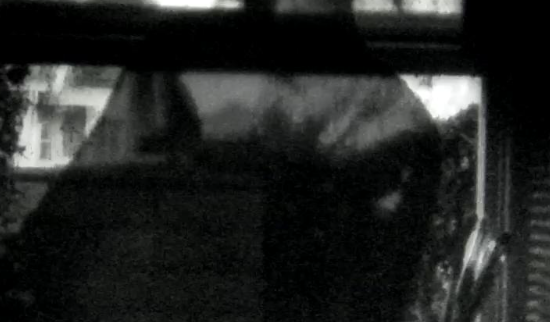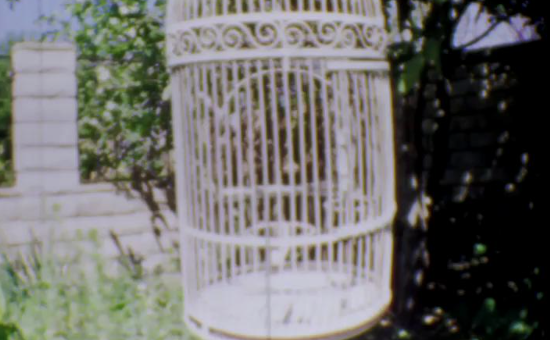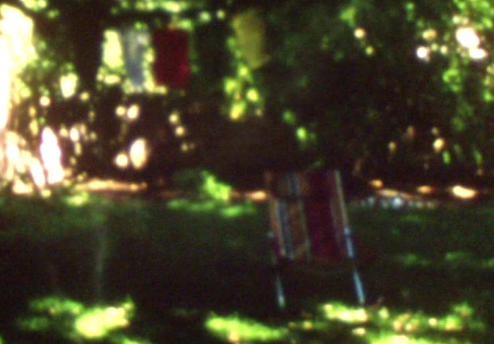Lauren is a Los Angeles based cinematographer and a graduate of the American Film Institute Conservatory. She has shot narrative features, shorts, documentaries, music videos, and branded content throughout the US and internationally. In 2019 she completed principal photography on the independent feature “Ma Belle, My Beauty,” directed by Marion Hill. The film is a 2020 Sundance Institute Launch Grant Fund Recipient. Lauren is an avid consumer of true crime novels, post-punk, and Japanese stationery.
An Interview with Lauren Guiteras:
 What about the craft of cinematography inspires you most?
What about the craft of cinematography inspires you most?
There are so many inspiring aspects of the craft to choose from so that’s a tough question. Right away I would say that studying lighting has been one of my favorite things to do, not just on set but also in daily life. Every day you can find fascinating examples of how light shapes your surroundings. When I encounter light out in the world that I think is beautiful, I try to take mental notes of what was happening: what the sources were, what direction they were coming from, how the light they produced bounced off of reflective surfaces or was shaped by windows or other obstacles that created texture.
I also love the collaborative nature of what we do in moviemaking. The best version of the creative process lets you build on each others’ work and you are constantly surrounded by ideas that make you reconsider and strengthen your own. My favorite shoots have been those where the director and I have built a common language that just sort of starts to work on its own after a while. Not mind-reading, but close. Additionally, I enjoy the challenge of having to adapt to changes, which are inevitable in production. Having to think on your feet makes you re-engage with the material you’re shooting and I find the energy of that process to be invigorating.
 What do you look for when signing on to shoot a project? Are there any specific kinds of films that excite you?
What do you look for when signing on to shoot a project? Are there any specific kinds of films that excite you?
Mostly, I look for stories I would like to watch. The most important thing about a project is your personal connection to the material. I am looking to shoot more sci-fi, horror, and dark comedy in particular because I tend to enjoy working in higher contrast & darker lighting scenarios, and the opportunity to light and shoot that way doesn’t happen as often in, say, straight comedy.
On the complete opposite end of the spectrum, I also lately find myself drawn to neorealist and slice-of-life movies. A lot of the movies in between the hyper-stylized and hyper-real aren’t quite as compelling to me.
 Your photography series from Japan is stunning, with vibrant colors and a great eye for composition. Would you speak to the inspiration and choice of filter?
Your photography series from Japan is stunning, with vibrant colors and a great eye for composition. Would you speak to the inspiration and choice of filter?
Thank you very much. I think I responded instinctually to the colors because they were expressive of the way I felt seeing Japan for the first time. I was just completely gobsmacked by Tokyo. Surrounded by towering glass and relentless sound at one moment and discovering small treasures in quiet corners at the next, I felt like there was an underlying electric current pulsing through everything I saw.
I found the filter by complete chance in a bargain bin during my first few hours in the country – at “Lucky Camera” in Shinjuku (you can’t make this stuff up). I literally just picked it up because it was shiny, it only cost $20, and I wanted to see what it would do. So the inspiration was a fluke and I didn’t plan the colors at all. But from the moment I looked through the EVF on my camera I knew I’d be keeping the filter on the lens as much as I could. It cuts quite a lot of light, so unfortunately it made short-exposure night photography a bit more difficult. And most of the night photos I took without the filter felt way better in black and white than in “normal” color. Again, extremes. Either vibrant pink/purple/blue or no color at all felt more appropriate to me than the no-man’s-land of standard color.
Anyway, the filter was a mystery for a little while. It was tough to find information about it online (the manufacturer, Kenko, told me that it has been long since discontinued). Thanks to the people at Fujifilm Square in Roppongi, I learned that it was designed to reduce light pollution in astrophotography. I have never once used it for that purpose, or, in fact, at all since returning from Japan. A friend of mine suggested that I leave it in a bargain bin for a new person to find. This is a beautiful thought, but at the moment I have no plans to let it go.
Are there any other art forms you look to for inspiration when formulating the visual language of projects you’re prepping to shoot?
Still photography and graphic novels are both great. Stills for mood and tone and composition, graphic novels for pacing and shot selection. Music is also great to talk with a director about because it informs pacing, energy, mood, and tone. It doesn’t have to be music that will end up in your film, but I’ve found sometimes that you can find a song with a director where they’re like “this track feels like this scene,” and the comparison can help you more vividly imagine the trajectory of that scene.
 What challenges have you encountered pursuing a career as a DP?
What challenges have you encountered pursuing a career as a DP?
My personal struggle usually has me facing my fear of failure. I always have to fight the instinct to go with “safe” choices or gear or techniques that I already know instead of taking chances on new practices that I’m not as familiar with. On an intellectual level, I know that the only way to gain experience is to try new things, but on an emotional level I feel quite a lot of resistance from an anxious pest in my thoughts. I am always working on overcoming that knee-jerk reaction because that’s the only way to improve. I think a lot of DPs are extremely worried about making work that they’re not proud of — and we’re not just worried for the failure of the project, but for the implications we think this failure suggests about us as artists. The truth is that everyone makes ineffective work at some point, and it doesn’t mean that you are not capable of making better work in the future. The fallacy of “talent” is an extremely dangerous thing for all of us scrolling through Instagram. “You’re so talented” is a compliment I still (secretly? not so secretly?) crave and I don’t think I’m alone, because it glorifies you; it puts you in a safe place where you cannot fail. You are miraculously, uniquely, innately attuned to the divine truths of image-making. This is not possibly something that can be learned. By that logic, when you fail, you must not be “talented.” And this logic gives you permission to stop trying when you don’t succeed the first time, because it suggests that talent is not and cannot be developed; it’s either there or it’s not. Some insecure part of me still yearns to hear that I am “talented,” and I sometimes find myself slipping into the word when I want to praise someone or their work. Even so — fuck talent. It doesn’t exist. And the spectre of it has created far greater obstacles for me than low budgets or long hours ever have.
 How have you cultivated community in the filmmaking industry? Do you have any cinematography mentors?
How have you cultivated community in the filmmaking industry? Do you have any cinematography mentors?
I’m always going to my peers from my graduating class at AFI for advice. We very much still keep in touch and have an ongoing discussion about the opportunities and challenges facing us as time goes on. From time to time I also keep in touch with cinematographers who are further along in their careers, and they’re very generous with their time and advice. So I would say, informally, yes, I have mentors, but no one who is formally The Mentor. Something I should probably work on.
Have you developed any habits/rituals as part of your creative process?
I like going to museums as often as I can, regardless of whether they’re related to cinematography/photography. Just looking at art of any kind is always a good thing. And sometimes I just have to get out of my own head and socialize, or do puzzles, or go for a walk. When I started shooting I had an obsession with doing as much work as possible, but as I’ve gained more experience I’ve learned that getting enough sleep and replenishing my energy are critical to preserving creative inspiration.
Contact Info:
www.laurenguiteras.com
@laurenguiteras




No Comments